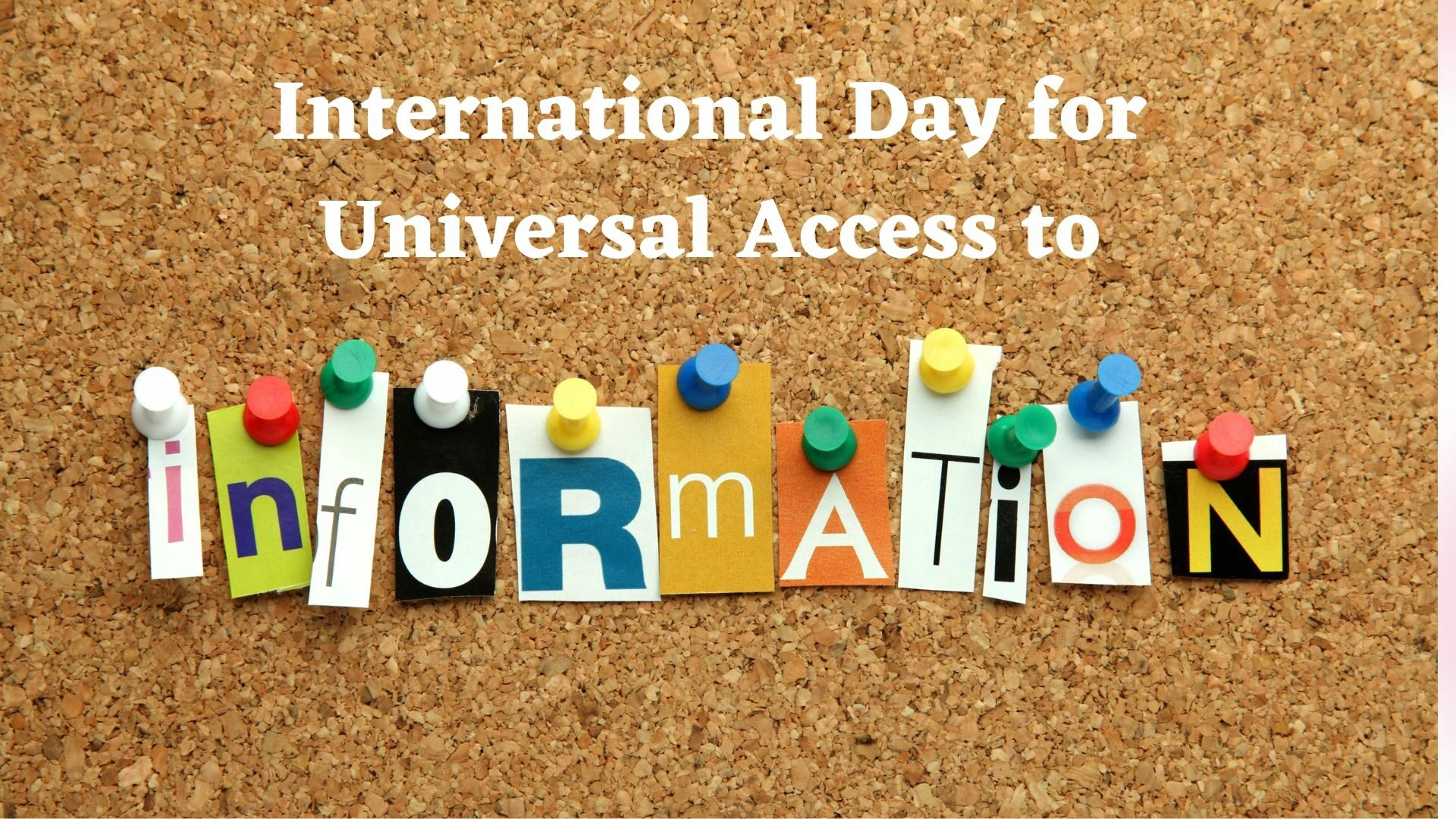Universal access to information is not symbolic. It is the operational backbone of accountability, climate resilience, and investment certainty. A new global statement issued in Manila on 29–30 September 2025 places environmental information at the centre of the right to know. It urges governments to proactively publish data, strengthen oversight, and remove barriers to timely disclosure. Sri Lanka already has a strong legal base through the RTI Act, No. 12 of 2016. The next step is execution: make environmental data open by default, accessible to all—including people with disabilities—and enforceable through the RTI Commission.
What the Manila Statement Says
Delegates at the Global Conference for the International Day for Universal Access to Information reaffirmed that access to environmental information is a cornerstone of human rights, sustainable development, and community resilience. They linked the agenda to long-standing international frameworks such as the Rio Declaration’s Principle 10, the Paris Agreement’s Article 12, and UN resolutions recognising the right to a clean, healthy, and sustainable environment. The statement also references regional models like the Aarhus Convention and the Escazú Agreement as evidence that clear legal guarantees and independent enforcement work in practice.
Key directives include:
- Proactive publication of environmental data by public authorities, and where relevant, by private entities via due-diligence and ESG disclosures.
- Creation of public environmental information clearinghouses with clear timelines and procedures for disclosure.
- Legally narrow refusal grounds, with independent oversight and remedies for delay or denial.
- Specific support for Small Island Developing States (SIDS) to adopt and implement access-to-information laws.
The statement explicitly ties these steps to SDG target 16.10, which calls on states to ensure public access to information and protect fundamental freedoms.
Why This Matters for Sri Lanka
Sri Lanka’s RTI Act guarantees every citizen a right of access to information held by public authorities, overseen by an independent five-member RTI Commission that hears appeals and can order disclosure. This legal foundation is sound. The gap is operational: fragmented datasets, PDF-locked reports, weak metadata, and limited disability access. Aligning with the Manila statement would move RTI from request-driven to publication-by-default, especially for environmental data where timeliness saves lives and money.
Three High-Value Outcomes Follow
- Climate and Disaster Readiness
Real-time access to flood maps, rainfall, reservoir levels, landslide warnings, air and water quality, and coastal erosion models helps local authorities, businesses, and households take faster decisions. Open data also improves early-warning reach via third-party apps and media. - Investment Certainty and ESG Compliance
Investors and lenders now audit data integrity as part of ESG. A single national clearinghouse for environmental permits, EIA summaries, emissions inventories, and compliance orders reduces due-diligence friction and signals rule-of-law discipline. Predictable disclosure lowers conflict and delays. - Public Trust and Participation
When communities can see baseline data and modelled risks in plain language, consultations become evidence-based. This reduces litigation risk and improves project design. SDG 16.10 treats access to information as a prerequisite for peaceful, accountable institutions.
Five Practical Steps for Rapid Alignment
- Mandate “Open by Default” for Environmental Data
Publish raw machine-readable datasets with APIs: ambient air and water quality, emissions, waste flows, forest cover, protected-area boundaries, EIAs and monitoring reports. Include data dictionaries and update cadences. - Stand Up a National Environmental Information Clearinghouse
One portal with search, bulk download, accessibility features, and legally defined service levels. Link all custodians: Central Environmental Authority, Geological Survey and Mines Bureau, Irrigation, Disaster Management, Energy, Ports, Urban Development, Local Authorities. - Strengthen Enforcement via the RTI Commission
Resource the Commission to issue standard disclosure directives for common environmental datasets, fast-track appeals on imminent-risk matters, and penalise non-compliance. Use templated publication schemes to reduce line-ministry burden. - Codify Private-Sector Disclosure Hooks
Through reporting rules tied to permits and listings, require sustainability and due-diligence disclosures, including emissions, effluents, hazardous incidents, and remediation plans, with open licences for reuse. - Make It Inclusive by Design
All outputs should follow WCAG accessibility standards; use Sinhala, Tamil, and English; map interfaces for low-literacy users; and support offline access via SMS or IVR alerts where possible.
The Regional Playbook Sri Lanka Can Adapt
- Aarhus: Three procedural rights—access to information, public participation, and access to justice—implemented with clear timelines and low barriers. Applicable elements include deemed-refusal deadlines, fees discipline, and proactive registers.
- Escazú: Adds specific protections for environmental human rights defenders and sets region-wide cooperation on capacity building. While regionally focused on Latin America and the Caribbean, the publication schemes and defender safeguards are relevant design choices.
Bottom Line
The right to know is already Sri Lankan law. The International Day for Universal Access to Information clarifies the next frontier: environmental transparency that is real-time, machine-readable, inclusive, and enforceable. Deliver that, and Sri Lanka advances SDG 16.10, de-risks climate adaptation, and sends a strong signal to investors and communities alike.













